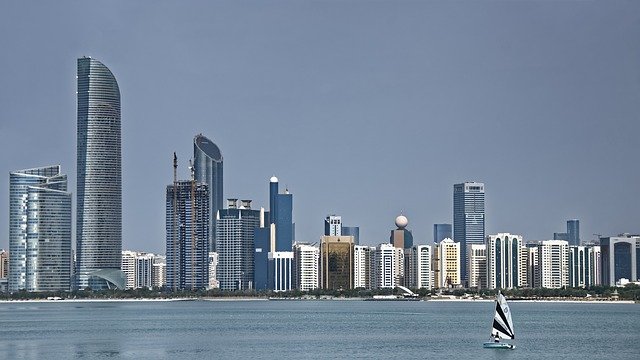By Lynda Kiernan, Global AgInvesting Media
The food crisis of 2007 brought food security to the forefront for the United Arab Emirates. In response, a Food Security Committee and the Food Security Centre – Abu Dhabi were created, and investments were deployed into overseas ventures to ensure steady imports.
COVID-19, however, added a new dimension to the challenges faced by Abu Dhabi in keeping its people fed. As shutdowns spread, planes were grounded on tarmacs around the world – a precarious position to be in for a country that imports 90 percent of its food supply.
Mariam al-Mheiri, the UAE’s first food security minister, told the Financial Times in August, “There were days when certain foods were not coming into the country . . . but we always managed. The leadership reassured the people and said ‘food and medicine is a red line for us, we will take every measure to ensure you always have access to what you need.’”
In response, this year has seen Abu Dhabi make significant strategic investments (many closer to home) designed to ensure food security.
In April, the Abu Dhabi Investment Office (ADIO) announced it had invested $100 million in four agtech companies – AeroFarms, Madar Farms, RNZ, and Responsive Drip Irrigation (RDI) – to bring next generation agricultural research and production to the desert.
Seven month later, in November, the ADIO announced an investment of AED152 million (US$41 million) across three companies – Pure Harvest Smart Farms, FreshToHome, and Nanoracks – advancing agtech innovation across “land, sea, and space”.
That same month the Abu Dhabi sovereign wealth fund ADQ acquired a 45 percent stake in Louis Dreyfus Company (LDC) in an landmark deal signaling the first time in LDC’s 170-year history it opening itself to outside ownership.
Now, only a matter of week after, the Abu Dhabi Agriculture and Food Safety Authority (ADAFSA), in collaboration with the ADIO, announced it was investing a further 523 million dirhams (US$143 million) for the establishment of four farms producing fish, vegetables, fruit, cattle, and poultry.
These investments, which will be managed in cooperation between the ADAFSA and the ADIO, will be developed by private companies, noted Saeed Al Bahri Salem Alameri, director-general of ADAFSA, who explained that the ADAFSA has developed a strategy with multiple goals of creating investment opportunities in the food and ag spaces, to connect investors with these opportunities in Abu Dhabi, to advance local investment, to build partnerships with investment funds, investors, and the private sector, and to ensure that those investments are aligned with the government’s objectives.
“We believe in the need to strengthen partnerships and cooperation with private sector companies, especially those operating in agricultural and food-related activities, to enable them to contribute to the development of the food security system,” said Alameri.
“Launching more projects in Abu Dhabi’s agriculture sector creates new investment opportunities, promotes sustainable agricultural development and supports the UAE’s efforts to stimulate investment and diversify income sources.”
The latest five investments being made under this mandate include:
~ A Musataha contract with Aqua Fishers Company to establish a fish farm for the production of 5,000 tons of seabream, seabass, hamour, red snapper, and shrimp at a total cost of approximately US$30 million. The operation will cover about 62 acres out at sea and will include administrative offices, fish handling and packaging facilities and laboratories located on Delma Island.
~ A Musataha contract with Mirak Agricultural Company to develop a farm to grow vegetables and fruit that will employ advanced technologies including hydroponics for climate controlled production. The project, which will cost US$38 million, will also include refrigerated warehouses and a lab to freeze and sanitize products.
Additional contracts were established with Alfafa Company – to produce hybrid seeds and to grow plants using drip irrigation systems at a cost of US$10.35 million.
Al Nahda Farm – to establish a new farm for the breeding of calves for the purpose of marketing the meat on the local market. The project will increase production on the farm from 3,500 to 20,000 head and will include barns, administrative buildings, and living accommodations for workers at a cost of US$23.4 million.
And Emirates National Poultry Farm – which was granted approval to establish a farm and slaughterhouse with production capacity of 30,000 birds per day, at a total cost of US$40.8 million.
“Abu Dhabi’s agriculture ecosystem is on a strong growth trajectory, as we cooperate with enterprising local companies to establish farms and build out the emirate’s farming capabilities,” said Dr. Tariq bin Hendi, director-general of ADIO. “
“Significant areas of land and sea are being transformed into high-yielding agriculture zones that are expected to create exceptional value through the development of research, operational and processing facilities,” continued Dr. bin Hendi. “As part of our commitment to spur private sector investment, ADIO is committed to working alongside entities to facilitate commercial success, and through Musataha agreements and other forms of support, we will back the growth of promising projects, innovations and businesses in Abu Dhabi.”
– Lynda Kiernan is editor with GAI Media, and is managing editor and daily contributor for Global AgInvesting’s AgInvesting Weekly News and Agtech Intel News, and HighQuest Group’s Oilseed & Grain News. She is also a contributor to the GAI Gazette. She can be reached at lkiernan@globalaginvesting.com

